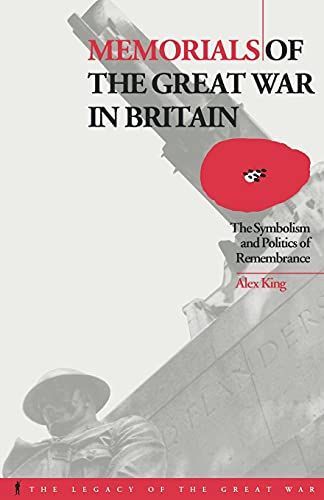
Memorials of the Great War in Britain The Symbolism and Politics of Remembrance
Taking as its focus memorials of the First World War in Britain, this book brings a fresh approach to the study of public symbols by exploring how different motives for commemorating the dead were reconciled through the processes of local politics to create a widely valued form of collective expression. It examines how the memorials were produced, what was said about them, how support for them was mobilized and behaviour around them regulated. These memorials were the sites of contested, multiple and ambiguous meanings, yet out of them a united public observance was created. The author argues that this was possible because the interpretation of them as symbols was part of a creative process in which new meanings for traditional forms of memorial were established and circulated. The memorials not only symbolized emotional responses to the war, but also ambitions for the post-war era. Contemporaries adopted new ways of thinking about largely traditional forms of memorial to fit the uncertain social and political climate of the inter-war years.This book represents a significant contribution to the study of material culture and memory, as well as to the social and cultural history of modern warfare.